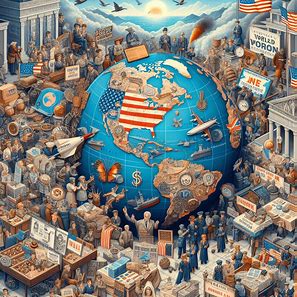Elon Musk
Elon Musk
Early Life and Education
Elon Musk was born on June 28, 1971, in Pretoria, South Africa. His early life was marked by a passionate interest in technology and innovation, though it wasn't always easy. As a child, he was severely bullied at school, but found solace in computers and programming. By age 12, he had already taught himself computer programming and sold his first piece of software – a video game called Blastar – for $500.
Musk's intellectual curiosity was evident from an early age. He was an avid reader, often reading for 10 hours a day, consuming everything from science fiction to philosophical texts. This voracious appetite for knowledge would later inform his varied business interests and technological innovations.
After completing his schooling in South Africa, Musk moved to Canada at age 17 to attend Queen's University, deliberately choosing Canada as a pathway to entering the United States. He later transferred to the University of Pennsylvania, where he earned dual bachelor's degrees in economics and physics. His academic journey continued with acceptance into a Ph.D. program in energy physics at Stanford University, though he left after just two days to pursue his entrepreneurial ambitions during the internet boom.
Early Business Ventures
Zip2 Corporation (1995-1999) Musk's first major business venture was Zip2, a web software company founded with his brother Kimbal. The company provided online city guides and maps for newspapers. During this period, Musk showed his legendary work ethic, often sleeping in the office and working seven days a week. Compaq acquired Zip2 for nearly $300 million in 1999, with Musk receiving $22 million from the sale.
PayPal (1999-2002) After Zip2, Musk co-founded X.com, an online payment company that would eventually become PayPal. This venture demonstrated his ability to recognize and capitalize on emerging technological trends. PayPal revolutionized online payments and was acquired by eBay in 2002 for $1.5 billion, with Musk receiving approximately $165 million.
Major Companies and Innovations
SpaceX (2002-Present) Space Exploration Technologies Corp., or SpaceX, represents one of Musk's most ambitious ventures. Founded with the goal of reducing space transportation costs and enabling the colonization of Mars, SpaceX has achieved numerous historic milestones:
- First privately funded company to send a spacecraft to the International Space Station
- Development of reusable rocket technology, dramatically reducing launch costs
- Creation of the Falcon 9 and Falcon Heavy launch vehicles
- Development of the Starship spacecraft intended for Mars colonization
SpaceX has fundamentally transformed the space industry, breaking the monopoly of government space agencies and establishing private space exploration as a viable enterprise.
Tesla, Inc. (2004-Present) Though not a founder, Musk joined Tesla early in its history and has been instrumental in its development into the world's most valuable automotive company. Under his leadership, Tesla has:
- Revolutionized the electric vehicle industry
- Developed breakthrough battery technology
- Created innovative autonomous driving systems
- Expanded into solar energy and energy storage solutions
Tesla's success has forced traditional automakers to accelerate their transition to electric vehicles, fundamentally changing the automotive industry's trajectory.
Other Notable Ventures
Neuralink (2016-Present) This neurotechnology company aims to develop brain-computer interfaces to help people with severe neurological conditions and eventually enable human-AI symbiosis.
The Boring Company (2016-Present) Founded to solve urban traffic problems through underground tunnel networks, this company has already completed several projects and continues to develop innovative tunneling technology.
Contributions to Technology and Society
Environmental Impact Musk's work with Tesla and SolarCity has significantly advanced sustainable energy adoption. Tesla's success has accelerated the global transition to electric vehicles and renewable energy, contributing to the fight against climate change.
Space Exploration Through SpaceX, Musk has:
- Reduced the cost of space access
- Revitalized public interest in space exploration
- Advanced the goal of making humanity a multi-planetary species
- Developed revolutionary reusable rocket technology
Innovation and Entrepreneurship Musk's approach to business and innovation has influenced countless entrepreneurs and changed how companies approach technological development. His willingness to tackle seemingly impossible challenges has inspired a new generation of innovators.
Leadership Style and Philosophy
Musk is known for his unique leadership approach, characterized by:
- Extremely high standards and expectations
- Direct involvement in engineering and design decisions
- Long-term vision focused on transformative goals
- Willingness to take significant risks
- Emphasis on vertical integration and in-house development
Controversies and Criticisms
While Musk's achievements are undeniable, his career has also been marked by controversy:
- Unconventional communication style, particularly on social media
- Management decisions and working conditions at his companies
- Public statements affecting stock prices and cryptocurrency markets
- Acquisition and management of Twitter/X
Legacy and Future Impact
Elon Musk's legacy will likely be defined by his role in accelerating multiple technological revolutions:
- The transition to sustainable energy
- The commercialization of space
- The development of electric vehicles
- Advances in artificial intelligence and neural technology
His work continues to influence various fields, from transportation to space exploration, and his companies remain at the forefront of technological innovation. While controversial, his impact on 21st-century technology and industry is undeniable.





Comments
Post a Comment